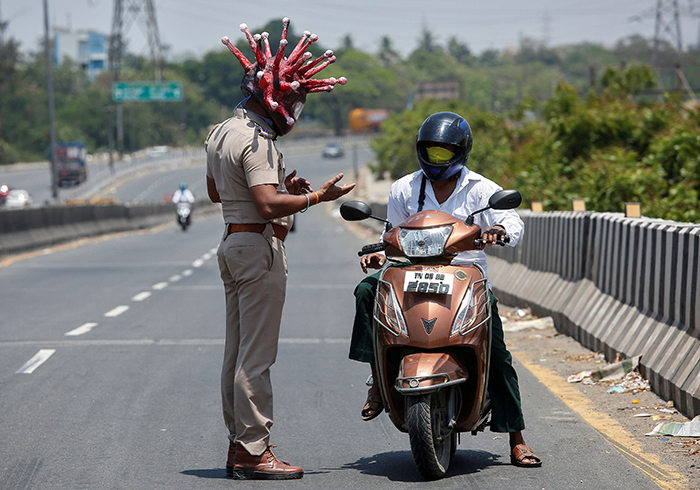My father is 55 years old and owns a small factory in Thane, Maharashtra that manufactures corrugated boxes. The factory is shut because of coronavirus and undoubtedly he faces massive losses.
But keeping that aside, my father supplies boxes to pharmaceutical companies, and industries that produce medical equipment and devices, as well as to other multinational businesses. Yesterday, one of his buyers called him and begged him to supply boxes because heart valves couldn’t be sent to the hospitals without proper packaging.
My father panicked and contacted some of his employees. They suggested that they go to the police station and request permission to open the factory for two days. He thought about this for no more than two minutes and then rejected the idea.
Why? After all, the job was comparatively ordinary; he had to write a letter stating the emergency and ask the inspector to grant him permission to allow him to open the factory for two days.
The answer: he fears the very institutions that are supposed to succour him.
But why do many of us fear the police or any law enforcement agency – institutions that have been established with the fundamental intention of helping and protecting citizens in need?
Why do citizens like my father, who have no criminal record, not have any confidence in the police? It is partially because of the reputation the police has built up over the years, of harassing people who ask for help, of taking bribes, of needing their egos stoked. For many businessmen in India, this, and much more, has been a reality.
Also read: 27-Year-Old French Doctor Thrown Into Coronavirus Front Line
This is not to say that the entire police force is tainted in any way, but there have been more than just a few instances faced by ordinary people that leave a bad taste in the mouth and make people wary of approaching the police unless in dire need.
Despite catchy slogans like “with you, for you, always” – many people like my father don’t quite believe the police is always the “protector of its fellow countrymen”. Many also consider the police as a tool of suppression that is wielded by those in power – such allegations have been made many times in Delhi over the past six months.
But my father voted for the prime minister’s party this past Lok Sabha election. What’s there to worry about then, you ask? The primary goal of the party was to eradicate corruption, right?
Despite this, my father is fearful of the corruption that the government feeds. He is fearful for his life and of the lives of the people who work with him. What if, if all goes well and his workers open the factory to resume work for two days and then some constable comes around and asks for money?
This underlying fear of corruption is what prevents my father from engaging in conversation with them to open the factory for the required boxes.
An image that was largely a creation of the colonial era – where policemen were seen as a symbol of state power and as agents of oppression and retribution, and not as a friend and protector of the people – still stands strong today in democratic India.
What I wonder is how many such people, like my father, do not approach institutions because they fear getting involved with the police. What we have to do now is to instil a reason for them to approach these institutions without fear. We have to question our MPs and MLAs and one’s who are working at grassroots to implement laws in a more pragmatic manner.
To the police,
I recognise the seriousness of the situation. I also understand you are the ones on the frontlines fighting against the pandemic, but you are failing the trust of the people. It’s time that you do something about this.
Yours truly,
A concerned citizen
Sanskruti Yagnik is a law student who is passionate about public policy and governance.
Featured image credit: Reuters

